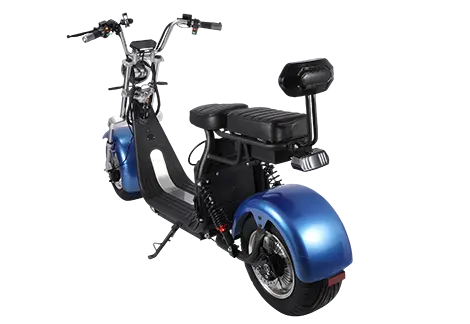The motorcycle industry has seen a major shift toward electric vehicles in recent years, and iconic American motorcycle maker Harley-Davidson isn’t far behind. With the launch of its electric Harley-Davidson motorcycle, the company embraces the future of motorcycling and caters to a new generation of riders who are environmentally conscious and looking for innovative technology in their vehicles.
The concept of an electric Harley seems to be a departure from the brand’s traditional image, known for its loud, rumbling V-twin engines. However, electric models’ unique blend of performance, sustainability and cutting-edge design has captured the attention of motorcycle enthusiasts around the world.
One of the main advantages of electric Harleys is their environmental impact. These vehicles feature zero emissions and reduced noise pollution, helping to create cleaner and quieter urban environments. This is in line with the growing global focus on sustainability and the transition to electric vehicles.
In addition to the environmental benefits, electric Harleys offer impressive performance. The electric motor’s instant torque delivery provides an exciting riding experience, and the absence of gears and clutches simplifies the operation of the motorcycle. This makes electric Harleys accessible to a wider range of riders, including those new to motorcycles.
As demand for electric Harleys continues to grow, so does interest in exporting these vehicles to international markets. However, exporting electric motorcycles, including electric Harleys, requires compliance with various regulations and standards. One of the key considerations when exporting an electric Harley-Davidson motorcycle is obtaining the necessary certificates and approvals.
When exporting electric vehicles, multiple certificates and approvals are often required. These may include:
Certification certificates: These certificates prove that the electric Harley meets the technical and safety standards of the destination country. They are critical to ensuring vehicles meet regulatory requirements for roadworthiness and environmental impact.
EMC (Electromagnetic Compatibility) Certificate: Electric vehicles, including electric Harleys, must comply with EMC standards to ensure that they do not interfere with other electronic equipment and are not susceptible to electromagnetic interference. EMC certificates prove compliance with these standards.
Battery Certificate: Electric Harley-Davidson motorcycles are powered by lithium-ion batteries and therefore must meet certain safety and performance standards. A battery certificate verifies the quality and safety of the battery used in the vehicle.
Type Approval: This is certification that the design of the electric Harley-Davidson motorcycle complies with the technical requirements and safety standards set by the destination country. Type approval is usually mandatory for vehicles legally sold and operated in foreign markets.
Customs documents: In addition to the technical certificate, the export of electric Harleys also requires necessary customs documents, including invoices, packing lists, certificates of origin, etc., to facilitate the smooth passage of the vehicles through customs inspection stations.
It is important for exporters of electric Harley-Davidson motorcycles to work closely with regulatory agencies and certification bodies to ensure that all necessary certificates and approvals are obtained. This process may vary based on each country’s specific requirements, and seeking expert guidance can help streamline the export process.
In addition to technical and regulatory aspects, exporting electric Harleys also involves considerations such as market demand, distribution channels and after-sales support. Understanding your target market’s preferences and regulations is crucial to a successful export business.
As the global electric vehicle market continues to expand, there are huge opportunities to export electric Harley-Davidson motorcycles to regions with growing interest in sustainable transportation solutions. By obtaining the required certifications and approvals, exporters can position electric Harley-Davidson motorcycles as a compelling option for riders looking for a blend of performance, style and environmental responsibility.
All in all, the emergence of electric Harleys represents a major change in the motorcycle industry. These vehicles combine performance, sustainability and innovation to make them an attractive option for riders everywhere. Exporting an electric Harley requires careful attention to regulatory requirements and obtaining relevant certificates and approvals. By effectively considering these factors, exporters can capitalize on global demand for electric vehicles and contribute to the widespread adoption of sustainable transportation solutions.
Post time: May-08-2024


